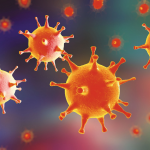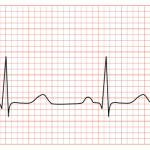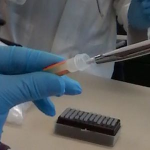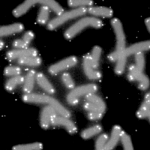Anti-GMO activists routinely label scientists and biotech supporters "shills for Monsanto." However, a new study suggests that those who spread GMO disinformation are the ones who are actually motivated by money.
Biomedicine & Biotech
A serious infectious disease nearly wiped out the beloved chestnut tree. Using genetic modification, scientists have found a way to bring it back. Of course, this is controversial because many environmentalists, such as the Union of Concerned Scientists, are only in favor of restoring the environment as long as scientists aren't involved.
Dr. David Shlaes, an expert in microbiology and infectious diseases, argues that the numbers of patients today in the developed world with highly-resistant infections are insufficient to drive an adequate market for antibacterial drugs to fight against these resistant pathogens.
Genetic engineering, despite its numerous contributions to our health and welfare, continues to face opposition, and sometimes from unexpected sources. The most recent "boogeymen" are genetically modified mosquitoes, which are a critical innovation for protecting us from some very nasty viral diseases. Dr. Henry Miller explains.
New York Times journalist Eric Lipton, who defended the indefensible by offering support to a group of virulent anti-vaxxers and scam artists known as Moms Across America, is a scourge on public health. The national newspaper recently demoted Jonathan Weisman, a deputy editor based in Washington, DC, for displaying poor judgment. Lipton should face the same fate.
Using an AI algorithm researchers can use electrocardiograms to tell us our gender and age. Have they found a Magic 8-ball of health?
It is such an ancient debate: Does our fate rest in our hands, or in the stars? Scientists in the fate camp present some new data tying behavior to genetic expression. Should those who believe in free-will concede defeat? Let's find out.
Some migraine sufferers are easily treated with triptans or opioids. Other migraine sufferers, however, aren't so lucky. Perhaps immunotherapy will provide relief. Several companies are working on injections of anti-migraine antibodies.
Can diseases be treated by modifying the genes of people with genetically-based disorders? Dr. Chris Gerry discusses CRISPR, a technology that edits the DNA in the human body. It has worked in a small number of cases. Does this mean that we have an immediate revolution in medicine on our hands? Or will it be just an esoteric experiment that will fail to live up to expectations? Maybe some of both.
A new, anti-5G "documentary" was created by people who are also "paranormal consultants." That's right, today's real-life Ghostbusters are afraid of iPhones.
Expert societies, especially the infectious disease pharmacists, should consider making recommendations regarding off-label use of antibiotics. These recommendations should be based on clinical, microbiological, and pharmacodynamic/pharmacokinetic data.
Given the uncertainty and risk of wrong interpretation, should you have your telomeres measured? Maybe, if the results motivate healthy lifestyle changes. For now, a surer bet for healthy aging would be to spend the money on exercise programs and nutritious foods instead.











